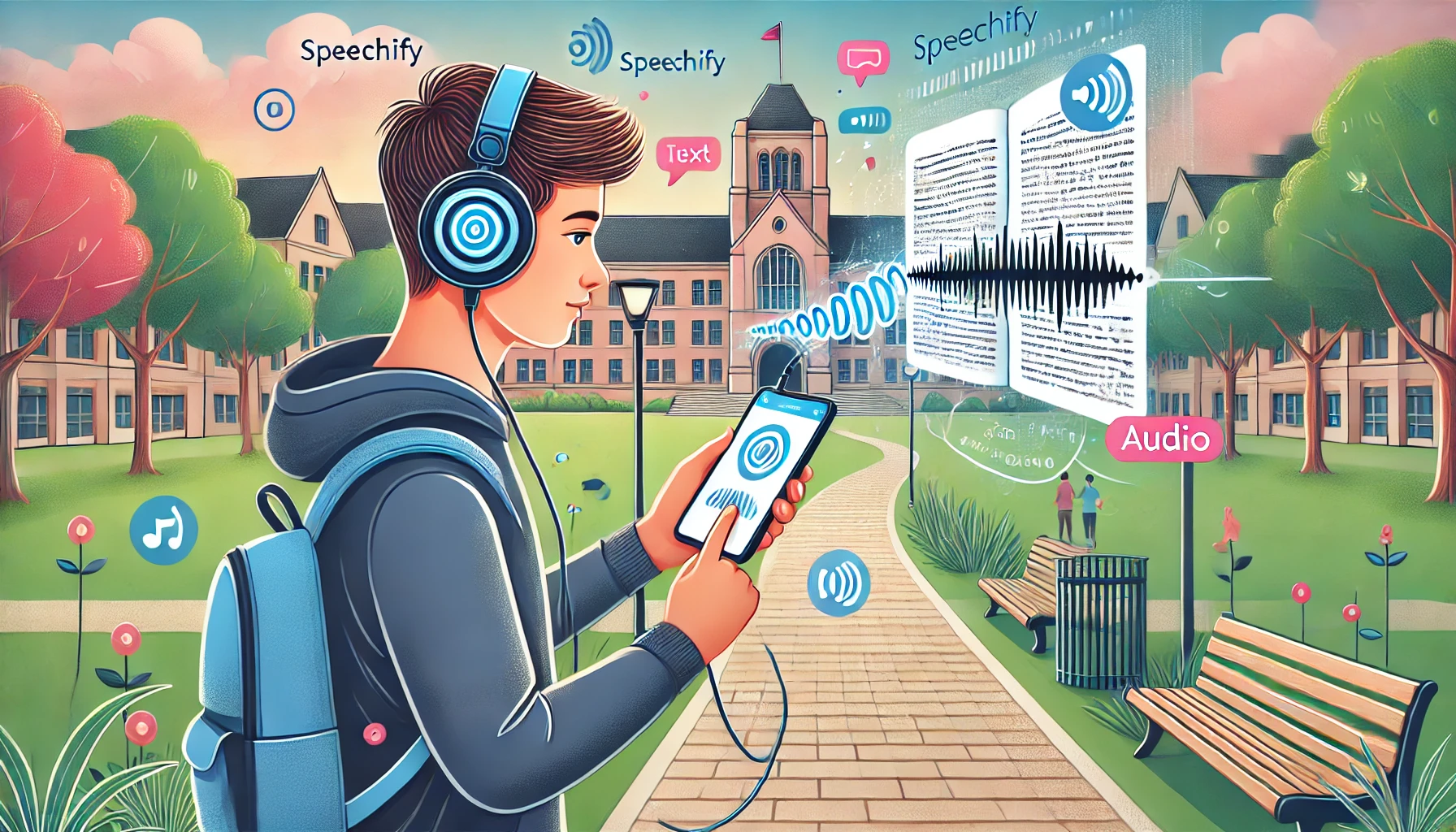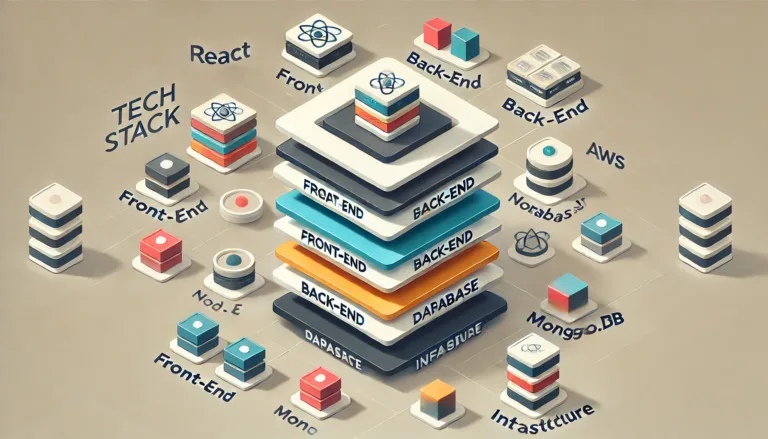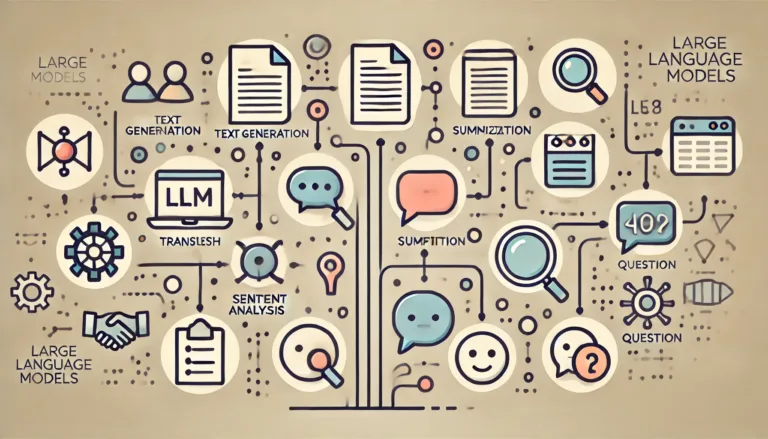Introduction
With the rapid advancement of artificial intelligence (AI), the educational landscape is undergoing a transformation, redefining how students approach studying. AI-powered tools are no longer just an emerging trend—they are becoming essential components of a modern student’s toolkit. These tools offer a range of functionalities that extend beyond simple automation, providing powerful support in areas like research, note-taking, writing, and personalized learning. As the digital age reshapes academic demands, AI is stepping in to enhance productivity and create new learning opportunities.
The aim of this blog is to explore the best AI tools available for students, detailing how they can optimize the learning experience. Whether it’s synthesizing complex research papers, generating quizzes for self-assessment, or even assisting with coding assignments, the right AI tool can make studying not only more effective but also more engaging.
In an academic environment where time management and comprehension are crucial, many students struggle to keep up with growing workloads and the demand for high-quality outputs. Traditional study methods can often be time-consuming and may not cater to different learning styles. AI tools, however, offer tailored solutions that meet these diverse needs. For example, students looking for efficient research support can use tools that summarize content quickly, while those needing help with mathematical concepts can leverage AI tutors to break down problems step-by-step. By incorporating these technologies, students can turn previously daunting tasks into streamlined and interactive learning experiences.

This blog will explore several categories of AI tools, grouped by their core functionalities:
- Research and Note-Taking Tools: These tools help students navigate vast information sources and consolidate their findings into coherent study notes.
- Writing and Grammar Assistance: Designed to improve clarity and polish in academic writing.
- Lecture Recording and Transcription: Ideal for capturing and reviewing complex class discussions.
- Assessment and Practice Tools: Tools for creating quizzes, tests, and other evaluative exercises.
- Subject-Specific Assistance: AI tools focused on niche topics like mathematics or coding.
- Text-to-Speech and Auditory Learning: Useful for students who prefer listening to content or want to learn on-the-go.
- General Study Support: All-purpose tools that enhance overall academic productivity.
With this roadmap, the blog will provide detailed insights into how each type of tool can fit into different study routines, making the journey through academia smoother and more enjoyable.
Categories of AI Tools for Studying
AI tools for studying can be broadly categorized based on their functionality and the specific needs they address. The primary categories include:
- Research and Note-Taking Tools: These tools are geared toward helping students gather, organize, and synthesize information more effectively. They simplify the research process by providing summaries, interactive document handling, and streamlined note organization.
- Writing and Grammar Assistance: Writing is a fundamental part of academic life, and tools in this category help students refine their language, check for plagiarism, and ensure their submissions meet high-quality standards.
- Lecture Recording and Transcription: AI transcription tools allow students to capture lectures and discussions in real-time, making it easier to revisit complex topics and extract key points without missing a word.
- Assessment and Practice Tools: Designed to aid in self-assessment and practice, these tools can generate quizzes, tests, and other evaluative content, allowing students to gauge their understanding and reinforce learning through repetition.
- Subject-Specific Assistance: Some AI tools focus on niche areas, like mathematics or science, offering specialized assistance for tackling subject-specific problems with step-by-step guidance and visual explanations.
- Text-to-Speech and Auditory Learning: These tools convert written content into spoken words, ideal for auditory learners or those who want to maximize productivity during commutes or multitasking.
- General Study Support: Versatile tools that provide a combination of functionalities, including tutoring, question-answering, and multimedia support, serving as comprehensive study aids.
By categorizing AI tools in this manner, students can identify which resources align best with their academic needs, making it easier to integrate the right tools into their study habits for maximum efficiency and enhanced learning.
AI Tools for Research and Note-Taking
For students, research and note-taking are critical parts of the academic process. Whether gathering data for a term paper or organizing lecture notes for efficient review, having the right tools can make these tasks significantly easier and more productive. AI tools in this category provide powerful features like document summarization, multimodal learning support, and interactive Q&A to elevate the learning experience. Here are two of the leading AI tools that enhance research and note-taking:
1. NotebookLM
NotebookLM, launched by Google Labs in 2023, is designed specifically to simplify research and note management. It serves as an advanced digital notebook that can transform the way students engage with academic content.
Key Features:
- Document Interaction: Users can upload various types of documents (PDFs, Word files, etc.) and seamlessly interact with them, making it easier to organize and cross-reference materials.
- Summarization and Insight Generation: Automatically generates concise summaries of documents, helping students grasp the core concepts without wading through large volumes of text.
- Interactive Q&A: Allows students to pose specific questions about their uploaded materials and receive targeted answers grounded in the content itself.
- Audio Overviews: Provides auditory summaries, catering to auditory learners and adding an extra dimension to note review.
- Best Use Cases: NotebookLM is ideal for students who need to compile large volumes of research, summarize content quickly, or derive insights from multiple sources. Its interactive Q&A feature also supports deeper understanding by enabling targeted inquiries into specific parts of the material.
- Impact on Learning: This tool enhances comprehension through its dynamic approach to document interaction. By converting passive reading into active engagement, NotebookLM fosters a more meaningful connection with the content, ultimately improving retention and critical thinking.
2. Google Gemini
Google Gemini is a versatile AI tool designed to support a range of academic activities, from basic research to advanced coding assistance. Its multimodal capabilities set it apart, allowing students to process and analyze information through text, images, audio, and video.
Key Features:
- Multimodal Learning Support: Students can incorporate and synthesize information from multiple formats—text, images, audio, and video—making it easier to grasp complex subjects through a variety of media.
- Advanced Research Capabilities: Gemini provides quick access to scholarly articles, research papers, and other academic sources, streamlining the research process.
- Coding Assistance: Offers real-time help with coding tasks, including debugging and explaining code snippets, which is especially valuable for students in STEM fields.
- Best Use Cases: Google Gemini is particularly useful for students engaged in projects that require the integration of multiple media formats or who need help navigating through extensive research. Its coding support makes it a go-to for tech-savvy students or those learning programming languages.
- Impact on Learning: By merging multiple learning modalities and providing robust research assistance, Gemini enhances both understanding and productivity. Students can efficiently tackle complex academic tasks, benefiting from a tool that adapts to various learning preferences and study needs.
These tools, NotebookLM and Google Gemini, represent a new wave of intelligent academic assistants, providing students with unprecedented support in navigating and mastering their coursework.
AI Tools for Writing and Grammar Assistance
Writing plays a fundamental role in academic success, and AI-powered writing tools have become indispensable in helping students produce high-quality written content. Whether it’s refining essays, conducting research, or checking for plagiarism, these tools enhance clarity, coherence, and correctness in writing. They are particularly useful for students looking to polish their drafts, avoid common grammatical pitfalls, and ensure originality in their work. Here are two standout AI tools that elevate the writing and editing process:
1. Grammarly
Grammarly is a widely recognized AI tool designed to assist students in improving the quality and readability of their writing. Its sophisticated algorithms provide real-time feedback and suggestions, making it a go-to companion for both novice and experienced writers.
Key Features:
- Real-Time Suggestions: Grammarly offers instant feedback on grammar, spelling, and style, ensuring that the text is not only error-free but also optimized for readability and impact.
- Plagiarism Checker: A built-in plagiarism detector cross-references billions of web pages and academic sources, ensuring the originality of content and helping students avoid unintentional plagiarism.
- Multi-Platform Support: Works seamlessly across various platforms, including Microsoft Word, Google Docs, and major web browsers, making it easy to use for writing in any environment.
- Best Use Cases: Grammarly is perfect for improving the quality of essays, research papers, and other academic documents. Its real-time feedback helps students refine their writing on the go, while the plagiarism checker ensures that all content is unique and properly cited.
- Impact on Learning: By highlighting common errors and providing context-specific suggestions, Grammarly serves as a practical tool for learning and applying grammar rules. It enhances writing skills, boosts confidence, and maintains academic integrity, making it an essential resource for students at any level.
2. QuillBot
QuillBot is a versatile AI-powered writing assistant known for its powerful paraphrasing and summarization capabilities. It helps students rephrase their content to improve clarity and reduce redundancy, making it particularly useful during the revision phase of writing.
Key Features:
- Paraphrasing Tool: QuillBot’s core feature is its ability to rephrase sentences and entire paragraphs while preserving the original meaning. It offers multiple modes (e.g., Standard, Fluency, Creative) to adapt the output to the user’s needs.
- Summarization: Provides concise summaries of lengthy documents, allowing students to quickly grasp the main ideas and themes without getting bogged down by excessive details.
- Best Use Cases: QuillBot is useful for refining drafts, rephrasing ideas, and condensing lengthy documents into key points. It’s particularly effective for students looking to improve readability, eliminate redundancy, and optimize the flow of their writing.
- Impact on Learning: QuillBot helps students develop a more nuanced understanding of sentence structure and word choice. By experimenting with different paraphrasing modes, users can explore diverse ways of expressing ideas, ultimately producing clearer, more polished text. This tool is also excellent for summarizing complex content, making it easier to review and study.
These AI tools, Grammarly and QuillBot, are powerful allies for students aiming to elevate their writing. They not only improve the technical aspects of writing but also support creativity and originality, making them indispensable resources for academic success.
AI Tools for Lecture Recording and Transcription
For students, capturing every detail of a lecture can be challenging, especially when the content is dense or complex. AI tools designed for lecture recording and transcription simplify this process by providing accurate, real-time transcription and key point extraction, making it easier to focus on understanding rather than note-taking. These tools are invaluable for reviewing lectures, organizing notes, and ensuring that no critical information is missed. One of the top tools in this category is:
1. Otter.ai
Otter.ai is a powerful AI-driven tool that transforms how students capture and review lecture content. With its real-time transcription capabilities and intuitive interface, Otter.ai has become a favorite for students seeking to maximize their productivity during and after class sessions.
Key Features:
- Real-Time Transcription: Converts spoken words into accurate, real-time text, allowing students to follow along with lectures without missing key information.
- Key Point Extraction: Automatically highlights and extracts key points from the transcription, making it easy to identify the most important takeaways.
- Platform Integration: Integrates seamlessly with popular platforms like Zoom, Google Meet, and Microsoft Teams, enabling effortless recording and transcription of virtual classes and meetings.
- Best Use Cases: Otter.ai is ideal for capturing lecture content and creating searchable transcripts. Its ability to identify key points means that students can focus on engaging with the lecture instead of manually taking notes, making it a perfect tool for complex subjects that require detailed understanding.
- Impact on Learning: Otter.ai facilitates effective review and retention of complex lecture materials by turning spoken content into structured, searchable text. Students can revisit specific parts of the lecture, search for particular terms, and extract valuable insights, enhancing both comprehension and long-term retention.
AI Tools for Assessment and Practice
Assessment and practice are essential components of learning, providing opportunities to reinforce concepts and identify knowledge gaps. AI tools for assessment and practice help automate quiz creation, offer instant feedback, and allow students to test their understanding in a structured manner. These tools are especially useful for active learning and self-evaluation, enabling students to refine their knowledge through regular practice.
1. Quizgecko
Quizgecko is a versatile AI tool designed specifically for creating quizzes and assessments. It enables students and educators to generate customized quizzes from existing study materials, making it easy to test knowledge on a specific topic.
Key Features:
- Quiz Creation: Automatically generates quizzes from any input text, allowing users to create questions and tests quickly and efficiently.
- Grading: Offers automated grading of quizzes, saving time and providing instant feedback on performance.
- Feedback Mechanism: Provides feedback on each answer, helping students understand where they went wrong and how to improve.
- Best Use Cases: Quizgecko is great for self-assessment and testing understanding of the content. Its quick quiz generation feature is ideal for creating practice tests on-the-fly, making it an excellent tool for students preparing for exams or needing a quick knowledge check.
- Impact on Learning: By encouraging active learning and self-evaluation, Quizgecko helps students retain information better and identify areas that require more focus. The instant feedback loop promotes continuous improvement and supports a deeper understanding of the subject matter.
These AI tools, Otter.ai and Quizgecko, offer targeted support in lecture recording and self-assessment, respectively, making them valuable additions to any student’s toolkit. Their unique features streamline complex academic tasks and foster a more interactive, engaged learning experience.
AI Tools for Specific Subject Assistance
When it comes to mastering specific subjects, such as mathematics or science, traditional study methods might not always suffice. AI tools focused on particular disciplines offer tailored support that breaks down complex topics into digestible parts, making learning more accessible and interactive. These tools not only help students solve problems but also provide educational insights that deepen understanding. Here are two leading AI tools that excel in delivering targeted subject-specific assistance:
1. Mathly
Mathly is a specialized AI tool designed to support students in tackling mathematical problems, from basic arithmetic to advanced calculus. With its user-friendly interface and educational features, Mathly empowers students to approach math with confidence.
Key Features:
- Photo Input for Problem-Solving: Students can take a picture of a handwritten or printed math problem, and Mathly will not only provide the solution but also outline the steps involved in reaching that solution.
- Educational Explanations: Beyond simply providing answers, Mathly includes detailed, step-by-step explanations to help students understand the underlying mathematical principles and concepts.
- Best Use Cases: Mathly is particularly useful for understanding and solving math problems that students find challenging. Whether it’s for homework help or exam preparation, Mathly’s step-by-step approach makes complex problems easier to grasp.
- Impact on Learning: By breaking down difficult concepts into smaller, understandable components, Mathly simplifies complex mathematical concepts and improves problem-solving skills. This tool transforms what could be a frustrating experience into an opportunity for learning and mastery, fostering a stronger grasp of math fundamentals.
2. Studdy AI
Studdy AI serves as a versatile digital tutor, providing instant assistance and interactive support for a variety of subjects, with a strong focus on mathematics and science. Its interactive learning experience adapts to each student’s needs, offering personalized tutoring that goes beyond static lessons.
Key Features:
- AI-Powered Tutoring: Offers real-time, personalized assistance, making it easy for students to ask specific questions and receive tailored explanations.
- Step-by-Step Explanations: Breaks down complex problems into manageable steps, ensuring that students understand each part of the solution.
- Interactive Learning: Encourages follow-up questions and deeper exploration, promoting a more engaged and active learning experience.
- Best Use Cases: Studdy AI is beneficial for students who need personalized help in mathematics and science. Its interactive approach is ideal for reinforcing difficult concepts, practicing problem-solving, and mastering challenging topics.
- Impact on Learning: Studdy AI’s interactive and personalized tutoring provides targeted practice, making it easier for students to focus on areas needing improvement. By encouraging exploration and deeper understanding, it helps students achieve a higher level of mastery in subjects that often require detailed guidance.
These tools, Mathly and Studdy AI, provide students with subject-specific assistance that goes beyond standard tutoring. With their ability to simplify complex topics and adapt to individual learning needs, they offer powerful support for students striving to excel in challenging subjects.
AI Tools for Text-to-Speech and Auditory Learning
For students who prefer learning through listening or need to absorb content on-the-go, text-to-speech (TTS) tools are invaluable. These AI-powered tools transform written material into spoken words, making it easier for auditory learners to engage with their study materials. Whether reviewing notes during a commute or multitasking between different activities, TTS tools make content accessible in a new way, enhancing comprehension and retention. One of the standout tools in this category is:
1. Speechify
Speechify is a highly versatile text-to-speech tool designed to convert digital and physical text into spoken audio. With its natural-sounding voices and multi-language support, Speechify caters to a diverse range of students, making it an excellent choice for enhancing learning efficiency.
Key Features:
- Text-to-Speech: Converts any text—from PDFs, articles, and documents to web pages—into spoken words using high-quality, natural-sounding voices.
- Multi-Language Support: Offers text-to-speech in over 30 languages, making it accessible for non-native speakers and those studying foreign languages.
- Best Use Cases: Speechify is particularly suitable for auditory learners who retain information better through listening. It’s also ideal for multitasking students who want to learn while commuting, exercising, or engaging in other activities where reading might be impractical.
- Impact on Learning: By converting written material into audio, Speechify makes learning more flexible and accessible. It enables students to integrate study sessions into their daily routines, promoting better comprehension through auditory engagement. This tool is especially helpful for reviewing content repeatedly, thereby reinforcing key concepts and information.
AI Tools for General Study Support
General study support tools are designed to provide a broad range of functionalities, assisting with multiple aspects of the learning process. These tools can offer personalized guidance, answer specific questions, and deliver explanations through diverse media formats, making them highly adaptable to various learning needs. They often serve as comprehensive academic aides, supporting students across different subjects and study habits. A prominent example in this category is:
1. Socratic by Google
Socratic by Google is an AI-powered educational app that uses interactive tutorials and visual aids to help students understand a wide array of topics. It acts as a digital tutor, guiding students through complex subjects with a focus on visual and auditory explanations.
Key Features:
- Interactive Tutorials: Uses videos, step-by-step instructions, and visual diagrams to break down concepts, making learning more engaging.
- Voice Aid: Allows students to ask questions verbally, using speech recognition to convert their queries into text, which the app then responds to with detailed explanations.
- Best Use Cases: Socratic is particularly helpful for high school and college students who need assistance with breaking down complex subjects into simpler, more manageable parts. Its visual aids and interactive elements make it ideal for visual learners.
- Impact on Learning: By presenting information through a combination of visuals, text, and audio, Socratic helps students build a stronger understanding of difficult subjects. It encourages exploration and active learning, making challenging topics easier to digest and retain.
These tools—Speechify and Socratic by Google—are excellent examples of how AI can cater to diverse learning preferences. Whether supporting auditory learners through text-to-speech or providing comprehensive, multimedia explanations for complex topics, these tools make studying more engaging, efficient, and enjoyable.
Conclusion
As we explored throughout this blog, AI tools have revolutionized the way students approach studying, making learning more efficient, engaging, and accessible. Each tool serves a unique purpose, catering to different academic needs and learning styles. Let’s briefly recap the AI tools covered and their primary use cases:
- NotebookLM: Ideal for research and note-taking, offering document interaction, summarization, and interactive Q&A.
- Google Gemini: A versatile tool for multimodal learning and research, also providing coding assistance.
- Grammarly: Enhances writing quality through real-time suggestions and plagiarism checking.
- QuillBot: Refines drafts with paraphrasing and summarization features.
- Otter.ai: Captures lecture content through real-time transcription and key point extraction.
- Quizgecko: Generates quizzes for self-assessment and practice.
- Mathly: Simplifies complex math problems with photo input and educational explanations.
- Studdy AI: Offers AI-powered tutoring for mathematics and science, with step-by-step guidance.
- Speechify: Converts text into spoken words for auditory learners and multitasking.
- Socratic by Google: Breaks down complex subjects with interactive tutorials and visual aids.
Choosing the Right AI Tool: The best AI tool for a student depends on their specific academic goals and study preferences. For those focusing on research and note management, tools like NotebookLM and Google Gemini are highly recommended. If writing and grammar are areas of concern, Grammarly and QuillBot provide comprehensive support. For auditory learners, Speechify is a strong choice, while students looking for help in specific subjects will benefit from Mathly or Studdy AI. Lastly, Quizgecko is excellent for students who prefer to reinforce their knowledge through practice quizzes and self-assessment.
Final Thoughts: Integrating AI tools into daily study routines can significantly boost productivity, enhance comprehension, and make learning more interactive. These tools not only help automate repetitive tasks but also encourage deeper engagement with academic material. As AI technology continues to evolve, it will undoubtedly offer even more innovative ways to support students in achieving academic success.
References
- Global Admissions: 6 Best AI Tools for Enhancing Your Study Experience
- Study International: Best AI Tools for Students to Learn Better
- Computer Science: AI Tools to Help You Study
- Amber Student: Best AI Tools for Students
- Immerse Education: Best AI Tools for Student Productivity
- Kripesh Adwani: Best AI Tools for Students
- Reddit: What AI Do You Use for Studying?
- Google Blog: NotebookLM by Google Labs
FAQ
- What are AI tools for studying?
AI tools for studying are digital resources powered by artificial intelligence that assist students in various academic activities, such as research, writing, problem-solving, and personalized learning. They provide features like real-time feedback, text summarization, and interactive tutorials to make learning more efficient and engaging. - Which AI tool is best for improving writing?
Grammarly and QuillBot are the top AI tools for enhancing writing. Grammarly offers real-time grammar and style suggestions, while QuillBot helps rephrase and refine text, making them ideal for students looking to improve the quality and clarity of their written work. - Can AI tools help with understanding complex subjects?
Yes, AI tools like Socratic by Google and Studdy AI are specifically designed to simplify complex topics by breaking them down into step-by-step explanations, interactive tutorials, and visual aids, making difficult concepts more approachable. - Are there AI tools that cater to auditory learners?
Speechify is an excellent AI tool for auditory learners. It converts text into spoken words, allowing students to listen to their study materials on-the-go, making learning more flexible and accessible. - How do I choose the right AI tool for my needs?
Consider your primary academic challenges. If you struggle with research and note-taking, try NotebookLM. If writing is your focus, use Grammarly or QuillBot. For subject-specific help, Mathly or Studdy AI might be the best fit. Identify your needs and match them with the strengths of each tool.









